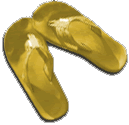Daily Bread and the power of conscience
In rural Ireland Murphy was selling chicken burgers. These became very popular based on an old family recipe. Before long Murphy began exporting to Europe. Little did anyone know he had been mixing horse meat with the chicken. Eventually his conscience got the better of him.
"How much horse did you put into the chicken burgers?" asked the Priest at confession. "Oh I never went beyond the 50/50 mark, Father," he replied. "One chicken one horse."
“Yes, days are coming, says the Lord God,
When I will send famine upon the land:
Not a famine of bread, or thirst for water,
But for hearing the word of the Lord.” (Amos 8:11).
Conscience. Many in our world today are suffering such a famine. They have stopped listening to the Word of God, and many have stopped worshipping God. They have become tired of the obligation of worship.
Conscience. Sunday morning is like the other days of the week, given to pursuits of making money and indulging personal desires of entertainment and pleasure. Are we pleasing to the Lord?
If we stop listening to the Word and stop worshipping the Lord, we forget the consolation of knowing the love and concern of our Shepherd. We no longer feed on the bread of the Word. We go hungry in our confusion. Give us this day our daily Bread.
Conscience is described in an old Indian word picture of a square peg inside the heart. When you do something wrong, the peg turns, and the sharp edges give you the sensation that you need to stop. But if you ignore the warning over time the edges wear off and it can turn freely without you feeling anything anymore.
“Resurrecting that little voice we have laid to rest is not impossible, but succeeding in life without it is,” says Jerry Shirley in his reflection “The death of a conscience”.
Faith and God’s Word give us the strength to love and care for one another.
The choices we make to follow or not to follow the Holy Spirit’s promptings in our lives will ultimately determine whether we are happy or unhappy in this life and in eternity.
Socrates was once talking to his disciples when an astrologer arrived and claimed that he could tell a person’s character by looking at the face.
The Astrologer looked at Socrates and said, “Shape of nostrils tell that this person has anger issues.”
Socrates disciples got angry, but Socrates calmly asked the astrologer to continue. The astrologer said, “Shape of the head reveals that he is definitely a greedy person. The composition of chin says that he is a whimsical person. Shape of his lips and teeth tell that this person always incites people to rebel against the authority.”
After listening to this, Socrates rewarded the astrologer and sent him away. His disciples asked Socrates why he endured all this negative criticism. “What the astrologer said about me is true. I have all those negative qualities and that’s why I rewarded him.
‘He said all these negative things but didn’t stress my conscience. With the power of my conscience, I keep control over all these negative things of my nature.”
Conscience lets us decide if we are to work for bread and water, or the Bread of life which comes down from heaven and gives life to the world (John 6:33).
(567 words)

